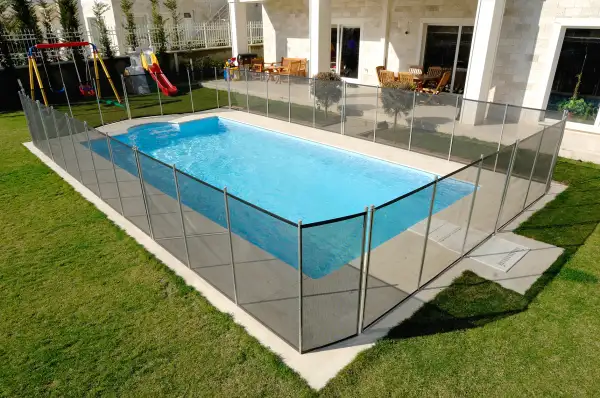You Probably Don't Have Enough Insurance for Your Backyard Pool

We’re deep in the dog days of summer, and home pools are a hot commodity.
Swimming pools are loads of fun, but they can also be dangerous. In the U.S., an average of 10 people drown every day, and drowning is the top cause of unintentional, injury-related death for children ages one to four. Nearly a quarter of child drownings happen during a family gathering near a swimming pool.
If you have a pool — even a small, above-ground one — you need to be mindful of the risks. If someone is hurt or dies in its water, it's a tragedy. You could also be on the hook for six figures (or more) in liability.
“You want to prevent drownings in the first place, whether or not you’re liable,” says Andrew Ryan, attorney and founder of The Ryan Law Group in Los Angeles. “Make safety the first priority.”
At the same time, he adds, pool owners should talk to their insurance agents about the coverage they need for liability around pool use. “You should always choose to have insurance for injuries related to pool accidents,” Ryan says.
Understand your liability risk
Your liability in the case of an accident will depend the situation, including perceived negligence; laws about what constitutes negligence vary from state to state. For instance, if you offer to watch children swimming in your pool and one of the children drowns, the child’s parents could have a case against you for negligence.
Ryan recalls a case in which a child drowned during a party where the victim’s parents were present. A court found that the pool owner wasn’t liable. “But if you’re having a birthday party for a bunch of nine-year-olds, you could be liable,” he says.
Your potential liability doesn’t stop when you aren’t at home. If a curious neighborhood child finds his way into your pool and is hurt or killed, you could be found negligent. The chances that you’d be declared legally responsible rise if you knew that neighborhood children were visiting your pool and did nothing about it, or if your pool lacked a fence or a locked gate to prevent kids from getting in.
Some pool owners hire a swimming instructor to teach local children, including their own, or rent out their pools as part of a home rental through sites like Airbnb.com, or as solo offerings through such sites as Swimply.com. An insurance carrier might see these as commercial activities, which would require separate, additional coverage.
Buy extra liability coverage
A standard homeowner’s policy probably doesn’t offer enough liability coverage for a pool owner. A homeowner’s policy might include $100,000 of liability coverage and $1,000 of medical coverage for someone who is hurt on your property, even if you aren’t technically liable for the injury. You'll need more, says Jay Schleicher, owner of BlueJay Insurance Agency in Minneapolis.
For a pool owner, Schleicher suggests adding an umbrella liability policy that sits over the top of your home and auto policies, which would protect the policyholder in case of a pool accident, an automobile accident, or even a fall on the property. “The cost averages around $200 a year,” he says, adding that the exact figure depends on the number of homes and vehicles you own, plus a small amount that’s related to pool ownership. “You need enough coverage at a minimum to handle your overall asset base.” In theory, a successful lawsuit could also garnish future wages, but cases generally settle before coming to that, Schleicher says.
Put safety first
Insurance is just one protection for pool owners. Taking safety precautions is also an important component of pool ownership, and one that insurance carriers and local ordinances may require. State Farm customers, for instance, must have fences around swimming pools. Locking gates that close automatically, safety covers, alarms, and monitored video surveillance can all help keep uninvited people out of the pool.
Keep ring buoys, reaching poles, and a first-aid kit near your pool. Know how to shut off filters and other pool components; post this information near the pool. Learn basic water safety and rescue skills, including CPR. Limit alcohol consumption when the pool is in use.
Perhaps most important, get your children (and anyone else who needs to learn) swim lessons. Knowing how to swim is a life skill, and a particularly vital one for anyone who has access to a private pool.
More from Money:
What Does Homeowners Insurance Cover in 2021?
6 Best Homeowners Insurance Companies of August 2021
This Summer's Hottest Moneymaker? Renting out Your Swimming Pool